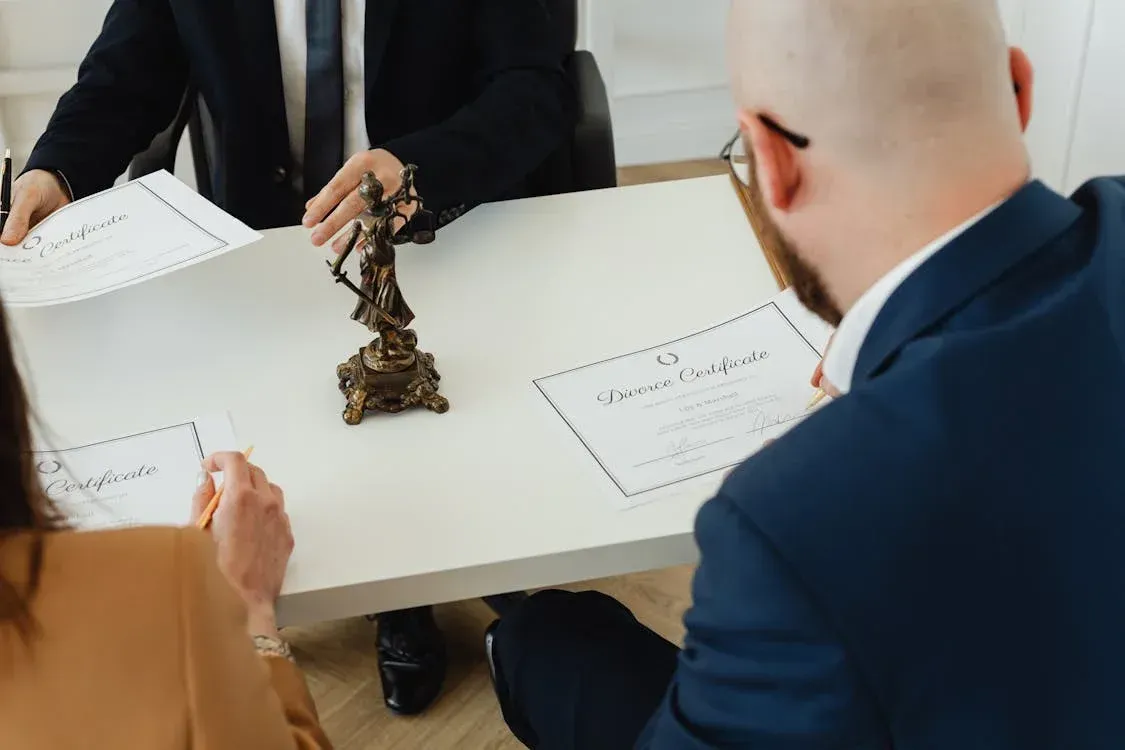Is my former spouse entitled to my inheritance?
At The Norton Law Group, leading family law specialists, we are often asked “How does the Family Court deal with assets received from an inheritance?”
The starting point in any property settlement is the determination of the assets of the parties, often referred to as the asset pool. The asset pool must include all assets, liabilities and financial resources of the parties irrespective of how and when they came into existence, namely whether it came into existence prior to, during or after separation, and irrespective of whether it was received by one party by way of inheritance.
An inheritance is not quarantined from the balance sheet. However, the exercise does not end there is one must then consider various factors in terms of the parties respective contributions throughout the relationship, including financial contributions, non-financial contributions and contributions in the home maker and parent role to determine how much weight must be given to the inheritance which one party may have received. Relevant to this analysis will also be when the inheritance was received throughout the relationship. There is no one answer as to how inheritance will be treated, as each case must very much be determined on its own facts. Once a determination is made as to what part, if any, of the inheritance the other party is entitled to receive, then consideration still must be given on competing section 75 (2) factors, as this may lead to a party receiving an adjustment over and above their contribution based entitlement, or indeed reducing that entitlement.
It is a complex analysis and as family law specialists, one of our specialist family lawyers in Sydney will be able to assist you in working through the analysis to provide you with reasoned opinion as to how an inheritance will be taken into account in your particular matter.
Some of the leading case authorities in the area of inheritances include the following:
Bonnici and Bonnici involved a relationship of approximately twenty-one (21) years. The husband received two inheritances late in the marriage. The Court held:
“A party could not be regarded as contributing significantly to an inheritance received very late in a relationship, and certainly not after it had terminated, except in very unusual circumstances” (emphasis added).
The Family Court decided that those unusual circumstances did not exist in this case, finding there were ample funds available by way of other assets in the property pool to achieve a just result
In Schirmer and Sharpe the husband and wife were married for about nine years and had four children. During the relationship the parties lived in a home owned by the wife’s parents and had nominal assets at the conclusion of the relationship. Three years after separation, the wife received two properties by way of an inheritance. The husband filed an application seeking property division after the wife received the inheritance.
The trial judge decided that the wife had made 90% of the contributions to the property pool and the husband had made 10%, then in the exercise of his judicial discretion, he made a further adjustment of 2.5% to the husband.
The husband appealed the decision, seeking an assessment of his contributions at 30%. On appeal, the Full Court found that the 10% adjustment made to the husband was within range of just and equitable outcomes and the appeal was dismissed.
In Sinclair & Sinclair the length of the relationship was disputed. The wife’s asserted it was a relationship of about 11 years while the husband asserted it was a relationship of about 26 years. The property pool was valued at around $7,000,000, most of which the wife had received early in the marriage by way of inheritance. His Honour found that three quarters of the property pool was unrelated to contributions made by the parties, given that they were made by the wife’s father. His Honour found that the parties contributed equally to the remaining 25% of the pool and made orders which had the effect of distributing 12.5% to the husband.
James & James involved a relationship of some 13 years. Throughout the relationship, the wife asserted that she and her husband made significant contributions to a farming property owned by the husband’s parents in the expectation that the husband would receive the inheritance. Indeed, the husband inherited the property shortly after separation. The Family Court accepted that the post separation inheritance would form part of the asset pool and to which the wife made significant direct and indirect financial contributions.
Future inheritances should also be investigated as they may also be taken into account in certain matters.
How a court decides on a future inheritance is more problematic. Usually, it is not taken into account. The authority for this is the case of Kavan & Mallery where his honour said:
“A will is a mere expression of intention at the time it was made which may be freely revoked or altered and has no legal effect until the death of the testator.”
However, such general approaches may not always be correct, as there are specific matters in circumstances where a future inheritance can be considered by the Family Court. This is where getting advice from specialist family lawyers can assist you. The circumstances might be that the inheritance is imminent in which event it should form part of the asset pool, or at a minimum it should be taken into account as a significant financial resource of the party likely to inherit. Once again, there is no one size fits all, and such general approaches should be avoided in favour of getting reasoned opinion from one of our family law specialist lawyers.
We offer the services of specialist family lawyers including accredited specialist family lawyers who are up-to-date on the latest family law authorities in cases so as to ensure that you are obtaining up-to-date specialised advice. Our specialist family lawyers Sydney and Leichhardt can advise you in relation to how an inheritance might be treated in your family law matter Contact us to arrange an appointment.










